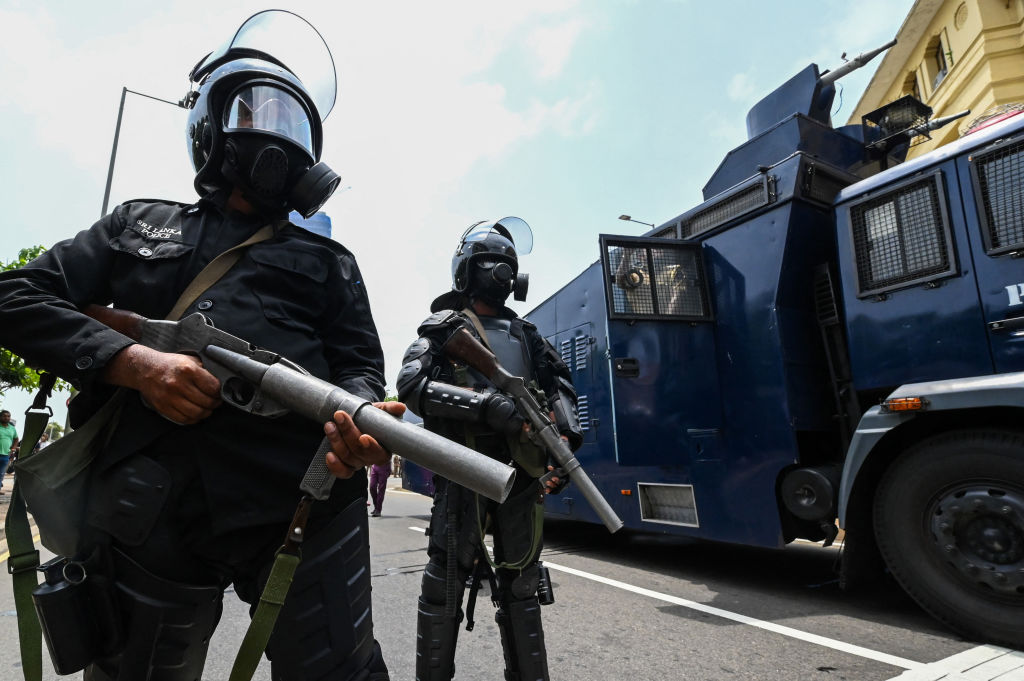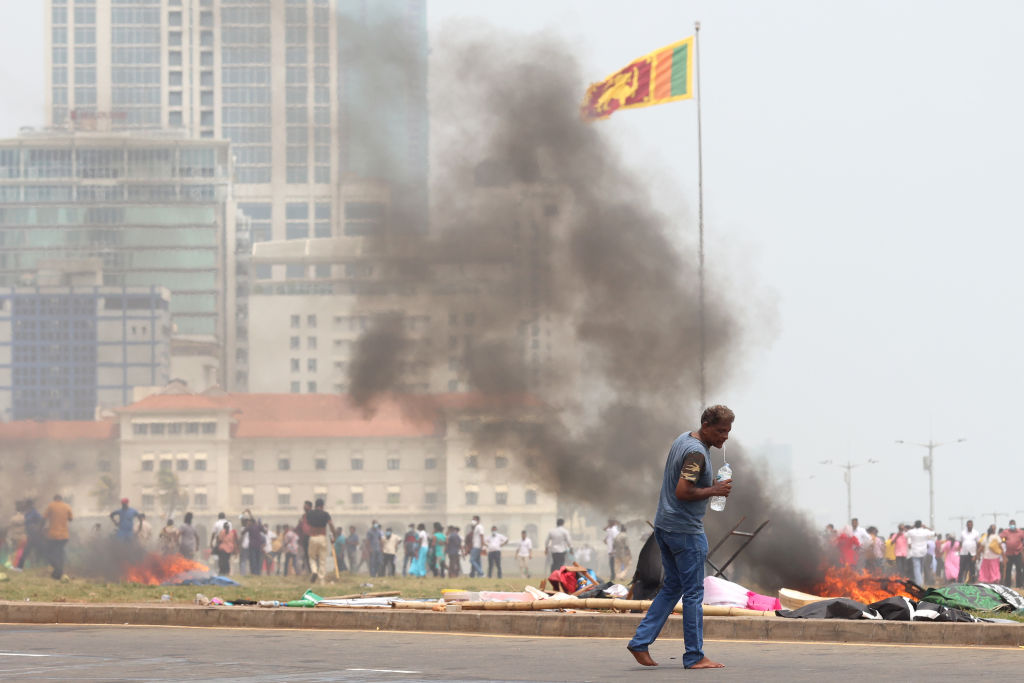
Violence erupted in Sri Lanka on Monday evening after the brother of President Gotabaya Rajapaksa resigned as prime minister, with local reports saying protesters targeted the homes and properties of ruling-party lawmakers.
The ancestral home of the Rajapaksa family in the southern district of Hambantota was set on fire, and police were forced to use tear gas to disperse protesters who tried to storm the prime minister’s residence in Colombo’s Temple Trees neighborhood, the DailyMirror newspaper reported. Several calls to the police spokesman seeking confirmation of the news reports went unanswered.
The destruction came after a day of fast-moving events in Sri Lanka, which has faced months of street protests as Asia’s fastest inflation and mismanagement of government finances lead to shortages of food and fuel. Earlier on Monday, government supporters clashed with Rajapaksa’s opponents who have camped out in downtown Colombo for weeks to demand his resignation, prompting the government to impose a nationwide curfew and call in the army.
Later, Prime Minister Mahinda Rajapaksa submitted his resignation as the family sought to stem the momentum of protesters calling for the entire family to step aside, leading to the dissolution of the cabinet. The president issued a statement inviting all parties in parliament to join together in a united national government to get through the crisis. But protesters defied the curfew and began attacking the homes of Rajapaksa allies.
The day of violence has left Gotabaya Rajapaksa more isolated, with no government in place to lead Sri Lanka’s ongoing talks with the International Monetary Fund for emergency funds to buy food and fuel. The latest attacks on politicians will raise the stakes for anyone who might join a new cabinet appointed by the president.

“Protests are going to continue as the economic situation worsens,” said Smruti S. Pattanaik, a senior research fellow at the Manohar Parrikar Institute for Defense Studies and Analyses in New Delhi. “Unfortunately, there are no easy solutions for the people of Sri Lanka. Negotiations with the IMF are going to be long drawn and even then the remedial measures will mean further hardships.”
Soaring prices of everything from gasoline to essential medicines have kept protests on the boil in Sri Lanka, which is close to bankruptcy and has suspended payments on foreign debt. IMF officials were set to hold virtual talks with their Sri Lankan counterparts from Monday through May 23 on the country’s request for support.
Sri Lankan stocks, the worst performers in the world this year, had gained on Monday before the violence on speculation that a new government would take charge.
Following months of mostly peaceful protests, Gotabaya Rajapaksa Friday declared a state of emergency, giving him sweeping powers to suspend laws, detain people and seize property. Television footage Monday showed groups setting fire to tents put up by anti-government demonstrators outside the prime minister’s official residence in Colombo. Similar scenes played out in front of the city’s waterfront promenade.
An official at Colombo’s main public hospital said at least 78 people had been brought in with injuries from the violence. Both the Rajapaksas condemned the day’s violence on Twitter.
Foreign diplomats, including the U.S. ambassador to Sri Lanka, said they condemned violence against peaceful protesters. The U.S. ambassador said the government should investigate anyone who incited violence and urged peace on the island.
Opposition leader Sajith Premadasa decried Monday’s violence in a tweet and warned against “serious repercussions if any peaceful protesters or media are harmed.”
More Must-Reads from TIME
- Cybersecurity Experts Are Sounding the Alarm on DOGE
- Meet the 2025 Women of the Year
- The Harsh Truth About Disability Inclusion
- Why Do More Young Adults Have Cancer?
- Colman Domingo Leads With Radical Love
- How to Get Better at Doing Things Alone
- Michelle Zauner Stares Down the Darkness
Contact us at letters@time.com